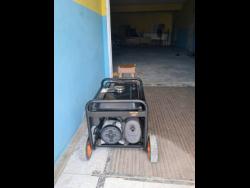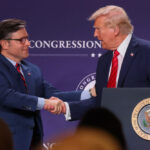Copyright Santa Clarita Valley Signal

President Donald Trump supports both fossil fuels and renewable energy, as long as they’re fully American-made. His stop-work order on the Revolution Wind project in Rhode Island — 80% complete and set to power 350,000 homes — was explained as a matter of national security. Wind turbines depend on rare earth magnets, of which China controls about 70-80% of global supply. Solar panels and batteries also rely on lithium and cobalt refined in China. Just as Trump expanded U.S. oil drilling in 2017 to reduce dependence on foreign oil, he now argues the U.S. should not replace Middle Eastern oil with Chinese minerals, but instead build both fossil fuels and renewables on American soil. He also emphasizes keeping jobs in the U.S. By requiring domestic production, Trump aims to grow clean-tech industries here at home, protect manufacturing, and expand employment. Rhode Island still relies on the regional grid, though it has pledged to meet 100% of its electricity demand with renewables by 2033. The technology to make every home solar-powered is not yet reliable or affordable, so the state’s goal is a gradual transition. Critics call Trump’s approach a “war on clean energy.” But he has a greater concern: China has repeatedly threatened U.S. security, from military intercepts and cyberattacks to economic pressure. U.S. intelligence agencies call China the top strategic threat to our military, infrastructure and economy. In that light, Trump insists energy must never become another bargaining chip in foreign hands. Another challenge is waste. Turbine blades are hard to recycle, and batteries contain toxic metals. After a lithium-ion battery fire at Moss Landing in California, soil tests found nickel, manganese and cobalt hundreds to thousands of times above normal. The fire also released toxic smoke that irritated residents and first responders, while the heavy metals pose long-term risks if they enter water or food supplies. Private innovators like Redwood Materials first built U.S. recycling capacity, and recyclable blades, battery recycling plants and new clean-tech factories are now rising in America. The real path forward is not fossil fuels versus renewables, but combining Trump’s call for self-sufficiency with bold investment in American clean-tech manufacturing. That way, we protect jobs, cut foreign reliance, and still capture the health and climate benefits of cleaner energy for future generations. Nancy Fairbanks



